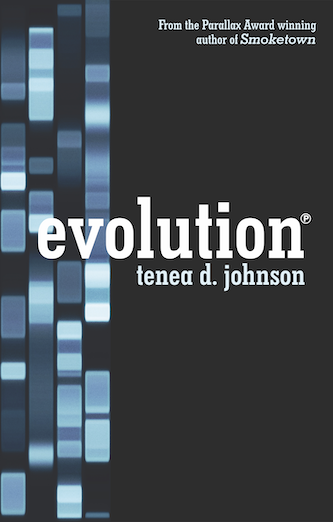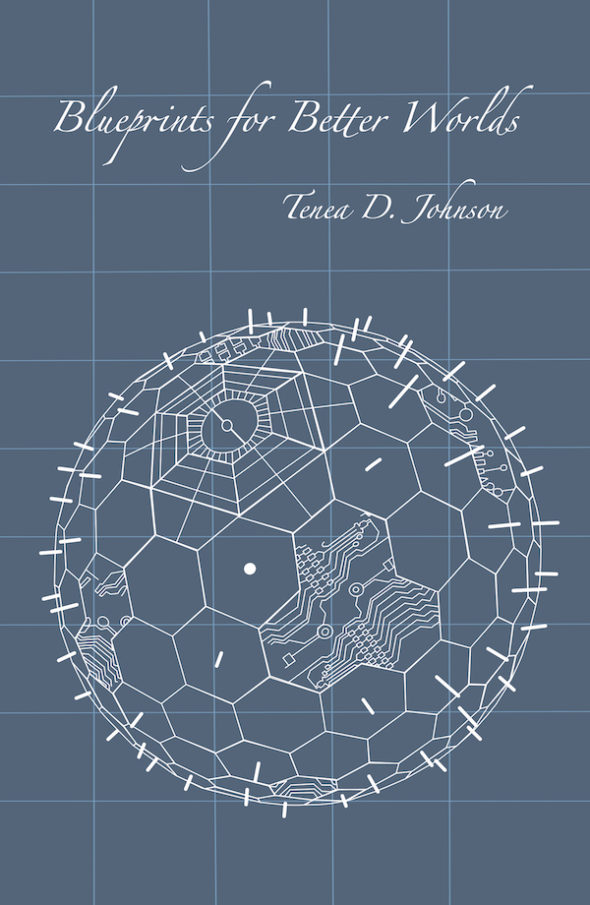Q&A: Afrofuturism Authors on Writing
Nicole Givens Kurtz, Andrea Hairston, Ivor Hartmann, Nisi Shawl and Ayize Jama-Everett, each featured in the Afrofuturism storybundle, open a window into their writing worlds. In the remaining days that the bundle is available, I’ll also share a closer look into each one. Ivor will be next up. For now, the group’s views on books and writing:
What’s the first book you really connected with? Made you cry? Laugh out loud?
The first book is lost to the mists of time.
Charlotte’s Web had me weeping, made me wake my mother up, talking ‘bout, “she’s dead! She’s dead!” My mother couldn’t figure out who was dead, but hugged me while I wailed! And then she realized it was a spider, from a book!
—Andrea Hairston
The first book I really connected with? I’ve been reading for almost sixty years now, so I may not be able to give you an accurate answer at this point. Tatsinda, by Elizabeth Enright, is the first book in whose protagonist I saw myself, so let’s go with that one. If you’re looking into buying it, be sure to pick the one with illustrations by Irene Haas. They’re essential. The plot is about this girl who is a little less white than the people she lives with, who all have silvery hair and blue eyes. Their magical kingdom is threatened by trolls and she saves them with her excellent rug weaving.
—Nisi Shawl
Impossible question for me really, I was six when the reading bug caught me wholly so I don’t remember which book it was that did that but there must have been one. However, the last book to do that to me was Petina Gappah’s Rotten Row.
—Ivor Hartmann
What subject do you find most difficult to write about? Most effortless?
Can they be the same thing? I love writing about fights and food. My next novel should be about food fights. But the choreography of physical combat and the innate sensualness of anything that is offered to the mouth make the writing effortless and enjoyable. I tend to stay away from real life events though I have experimented. Nonfiction is probably something I should push myself to write more but I think I need to hang in some plain old narrative fiction for a while before I do that. The idea that a mundane life can be worthy of insight given the proper attention to the craft of writing is not revelatory but expansive for a kid who grew up reading sci-fi and comics.
—Ayize Jama-Everett
Nothing is effortless. It all takes effort. People who think writing is easy have another think coming. That said, probably the hardest for me to write is harm. I love my characters—the vast majority of them, at least. Very difficult to portray them being hurt in any way.
—Nisi Shawl
The subject I find the most difficult to write about is black women’s pain. I do write about it, because that is a part of me; however, I find it so hard to revisit those painful points in my life or in the lives of others. It isn’t always necessary for the story, but when it is, that is where the writing gets tough. The challenge is to find words that can articulate something that is too large, too great, too painful to fit into words. How to do that?
Nothing I write about is effortless! It always takes work, sweat, and tears to produce a book. It’s like giving birth to a child. You nurture the story idea for months, watch it grow into a novel, then deliver it, but during those nine months there is hysterical crying fits, nausea, and difficulty sleeping. There are days when you food binge because your characters have you stressed and other days were you can’t eat at all because, well, your characters have you stressed.
—Nicole Givens Kurtz
How do you measure writing success?
Do I want to read it again as soon as I’m done writing it? This applies to the sentence, the paragraph, the page, and of course the book. It’s a hard mark and often I fail at it. But that’s the goal. I can’t focus on outside markers of success because they’re so fickle. I have to go internal. Of course, if I know others are appreciating the work, that always helps. But you rarely get that affirmation while writing. It’s usually only after. And for me, I’m barely online for more than ten or fifteen minutes a day. So I don’t really interact with my fans that much. So when someone comes up to me at a reading or what not and they say they enjoy the book, it blows me out the water. I’m stunned. Same with an email. I got a few messages from guys in prison who said my book was the first they read all the way cover to cover. That made my month.
—Ayzie Jama-Everett
I measure writing success by how it impacts people. If people tell me via review or posts or tweets that they enjoyed the novel or if they’re demanding the next installment, then I feel the story was successful. Of course, I would love to be a NYT Bestselling author, and that’s one measure of success. For me, if I find an audience that truly enjoys my writing or someone said it stuck with them, then I feel successful.
—Nicole Givens Kurtz
I am constantly measuring my own writing success! There are so many different yardsticks to go by: publication, sales, advance amounts, awards, reprints, reviews, “Best of” anthologies and lists…so many modes to fail of failure or triumph. Mostly this tracking is a private activity. I’d like to keep it that way.
—Nisi Shawl
Success is telling the stories you want to tell, how you want to tell them.
Success is challenging yourself and showing up every day for that challenge.
Success is having the generosity of spirit and the humility to connect with and support other artists.
Success is never giving up on getting better, but taking pleasure in what you have achieved.
—Andrea Hairston
What influences your work? People, other fields, other authors, events, histories?
My work is often influenced by real life events or situations I find myself, my friends, or strangers in. The entire beginning of my second Cybil Lewis novel, Cozened, began with me traveling to Phoenix and witnessing a car accident. The image of the glass and debris strewn across the road stuck with me and I went home and wrote the first chapter. The rest of the story fell in behind that singular event. As a black woman in America, there are many opportunities to tell my story and those who are like me. I’m inspired by advances in science too. For my novella, Replicated, the scientific news that an embryo had three DNA donors, instead of two, sparked the primary plot in the story.
—Nicole Givens Kurtz
I am an omnivore. I like to learn whatever there is to know. History, physics, music, math, biology, theatre, novels, economics, film…
—Andrea Hairston
See this post for authors who influence me. Other than that, I’d have to say music influences me tremendously. The titles of the stories in my Making Amends series, for instance, are inspired by the titles of songs—mainly Steely Dan songs. I listen to music when I write. Certain tunes haunt certain passages, though that may be imperceptible to my readers. The other major influence I can cite with certainty is the natural world: trees, waters, flowers, birds, weathers. Deer and other mammals. Fungi. I care so deeply about our environment. Can you tell by reading me?
—Nisi Shawl
What is it about books that fascinates you?
I like stories. I like a deep dive, wherever I can. I like art to engage the fullness of who I am. Good plays, books, films, music do this, each in their special mode.
Every story lends its shine to the next one I experience.
—Andrea Hairston
What fascinates me about books is the opportunity to live, briefly, in the lives of others. Although I may not spend much time in that world or universe, those experiences the character goes through stick with me. Those are thousands of lives I get to escape into when all I have is my one life. This gives me a chance to be a woman in China, a man on Mars, a wizard, and a shapeshifting tiger. I’m a lifelong learner. The excitement of acquiring new knowledge thrills me and it never gets old. The lessons the characters learn, I learn too. This is the allure of books to me as a reader. As a writer, I read to learn more about the craft and to be inspired.
—Nicole Givens Kurtz
What fascinates me about books is that, like human beings, they have both corporeal and a noncorporeal facets. Books have bodies: pages, binding, ink, illustrations. Pixels. Fonts. And they also have souls: stories, connections, references. Intentions. I don’t know of anything else to compare with them in that sense.
—Nisi Shawl




